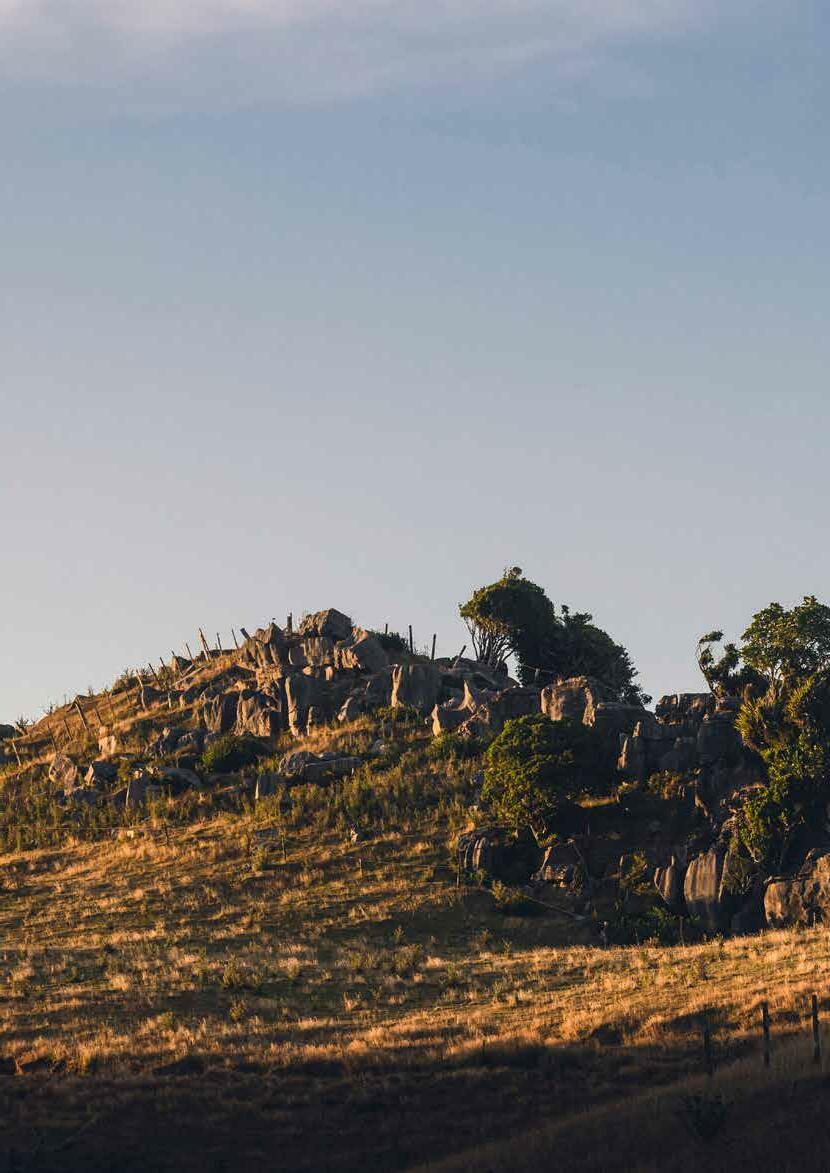
3 minute read
UPHOLDING OUR PROTECTION
UPHOLDING
OUR PROTECTION
Upholding covenants on behalf of landowners and advocating for issues that impact the work that we do continue to be an area of focus for QEII.
In the last financial year, we have continued to engage in advocacy and legal processes, ensuring that QEII remains the gold-standard for robust protection of indigenous biodiversity on private land in Aotearoa.
Partnerships are central to our work, however, where covenant values are under threat, we champion the protection of QEII covenants and the properties we own through participation in legal processes like litigation and involvement in RMA submissions and hearings.
We also have a mandate under our Act to advocate for and advise on the protection, preservation, use and enhancement of open space values in Aotearoa New Zealand. In the last couple of years, QEII has seen an increase in this advocacy work, more regularly making submissions on legislative changes and engaging in policy development processes across central and local government.
While the focus for engaging in these processes is championing QEII protection, it is also a way for us to collaborate with others, advocate for the landowners with whom we partner, and build stakeholder relationships and awareness of QEII’s work across different sectors and levels of government.
North Island Robin Photo credit: Malcolm Rutherford
Examples of work undertaken in the past year
• Whangārei airport proposal
In May 2022, Whangārei District Council carried out public consultation on options for a new airport site for Whangārei.
One of the sites overlapped with a covenant containing exceptionally high biodiversity values, and others in the area were at risk. QEII had serious concerns about the impacts that the proposed airport would have on these covenants.
We made a submission focusing on the significant risk to high value biodiversity that the proposed site posed. We set out that the forest remnants in the covenants were irreplaceable, meaning the impacts of an airport development were incapable of being addressed through any offsetting or mitigation, and so the site in question could not be considered a viable location for the airport. Nan Pullman, regional rep for Whangārei, spoke to Councillors about our submission at a hearing, driving home the significance of the sites and QEII’s commitment to protect them forever.

In August 2022, the Council confirmed that they had selected a different site that would not affect any QEII covenants. • Submission on proposed changes to the Emissions Trading
Scheme (ETS) ‘Managing exotic afforestation incentives’
In April 2022, the government consulted on the proposed removal of exotic forests from the new permanent post-1989 forest category in the ETS. This was in response to concerns from multiple sectors that the ETS was driving more land-use change to exotic forestry than originally intended, leading to unintended perverse outcomes. The government also sought feedback on how to reduce barriers and incentivise indigenous afforestation for carbon sequestration.
These issues are relevant to QEII for a couple of reasons – large scale conversion to exotic forestry has recently been largely driven by the ETS, and our regional reps are increasingly observing the negative impacts of this land-use change on protected covenant values. While we recognise that this is a very complex issue with a range of policy changes required, we supported the proposed change and used our submission as an opportunity to share our concerns regarding exotic forestry impact on biodiversity and covenant values.
We strongly support improved incentives for native afforestation and emphasised in our submission that we would like to see improved recognition of the carbon sequestration that is occurring through natural regeneration of native forest, including in QEII covenants. While we know that most QEII covenants are to some degree sequestering carbon, it is currently very difficult for landowners to receive any financial recognition of this. Improving recognition and incentivising native afforestation will both recognise the good work QEII covenantors and others are already doing and facilitate this work at a greater scale.
We’re awaiting a final decision from the government on the ETS proposal and will continue to advocate for improved recognition and incentives for native regeneration/afforestation for carbon sequestration and biodiversity co-benefits.








